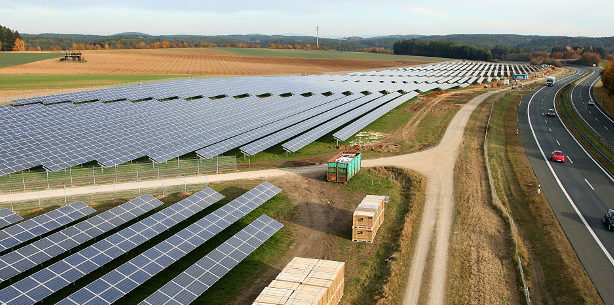On Wednesday, the European Commission’s DG Trade department published a draft proposal to amend its Minimum Import Price (MIP) structure dictating the tariffs to be applied to solar cells and modules arriving in the EU from China.
The draft proposal seeks to alter the current MIP by introducing a pricing timeframe, scheduling future tariff reductions based on projected market price data reflective of Taiwan’s PV Insights market index.
Despite the EC’s claims that the new proposed structure would offer interested parties more pricing transparency and predictability, European solar body SolarPower Europe criticized the regulations, arguing that the proposal “divorces prices from reality”.
EU Prosun, a European body of solar manufacturers that successfully lobbied for the introduction of the initial anti-dumping and countervailing measures against Chinese solar components in 2012, has now spoken about the new proposals in relatively lukewarm terms.
“The new system allows [for] better enforcement, better control and more predictability,” Milan Nitzschke, EU Prosun president, told pv magazine. “The differentiation for multi and mono products is more accurate.”
Nitzschke added that the DG Trade’s proposed prices do reach “injurious levels” that EU manufacturers will challenge during further proceedings, but admitted that the “there is a simple but clear legal requirement for MIP regulations.”
Nitzschke continued: “Prices have to be non-injurious to EU manufacturers. Therefore, I don’t believe that price levels as now disclosed by the EC will last.”
The EU Prosun went on to question the validity of Taiwan’s PV Insights, claiming that Taiwanese manufacturers consider the index prices to be manipulated below production cost, even in Taiwan. “To claim that those prices shall become the reference point for the MIP is a slap in the face of EU manufacturers struggling because of ongoing unfair trade,” he concluded.
This content is protected by copyright and may not be reused. If you want to cooperate with us and would like to reuse some of our content, please contact: editors@pv-magazine.com.



By submitting this form you agree to pv magazine using your data for the purposes of publishing your comment.
Your personal data will only be disclosed or otherwise transmitted to third parties for the purposes of spam filtering or if this is necessary for technical maintenance of the website. Any other transfer to third parties will not take place unless this is justified on the basis of applicable data protection regulations or if pv magazine is legally obliged to do so.
You may revoke this consent at any time with effect for the future, in which case your personal data will be deleted immediately. Otherwise, your data will be deleted if pv magazine has processed your request or the purpose of data storage is fulfilled.
Further information on data privacy can be found in our Data Protection Policy.